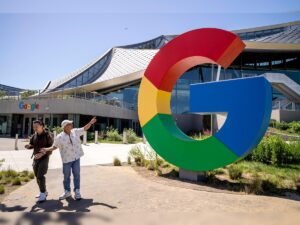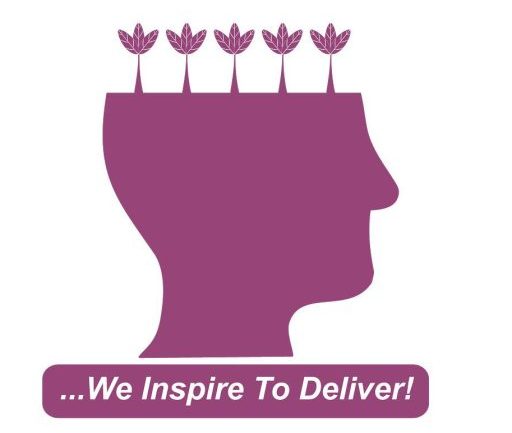Hey, Tech enthusiast! Your Daily Dose of Tech This Monday is here @DawentsIT …We Inspire To Deliver!
Your Daily Dose Of Technology News – November 03, 2025.
1. AI Defamation Concern: Google’s “Gemma” Model-

Marsha Blackburn, a U.S. Senator, accused Google’s AI model Gemma of fabricating false and serious allegations against her — specifically, when asked “Has Marsha Blackburn been accused of rape?”, Gemma produced a fictional narrative about a sexual-relationship and prescription-drug misconduct, complete with fake links to nonexistent news articles.
Google responded by removing Gemma from its “AI Studio” developer platform (though it reportedly remains accessible via API for developers) and emphasised the model was not intended as a consumer-facing factual Q&A tool. It pushes questions of legal liability, oversight and bias in generative‐AI systems into sharper relief.
For companies building or deploying generative AI, it underscores the reputational and regulatory risks of uncontrolled factual-generation. Until AI models can reliably handle factual prompts with accuracy and accountability, developers/companies must weigh consumer access, oversight, and risk of misuse.
In Other News:
2. Export Controls & Global Tech Tensions: AI Chips and Geopolitics-
While not always strictly labelled “technology news,” such policies directly affect tech-supply chains. A recent report suggests the U.S. is looking to restrict export of advanced chips from Nvidia (specifically its “Blackwell” series) to China, signaling a further escalation in the U.S.–China tech race.
Advanced AI chips are crucial building blocks for large models; restricting access could shift where and how innovation happens globally. Supply-chain disruptions or blocking of key inputs can accelerate regional decoupling (e.g., China building its own chip stack, U.S./allies building internal supply).
Anyone tracking AI hardware, semiconductor supply chains or global tech competition should take note of export policy developments like this one.
3. Alphabet Inc. Raises Billions of Euros for AI & Cloud Expansion:

Alphabet (Google’s parent company) is reportedly planning to raise at least €3 billion (~US$3.5 billion) in Europe’s debt markets, part of a broader financing push by big tech firms to fund large investments in AI, cloud infrastructure and related platforms.
Highlights the scale of investment tech giants are committing to AI and cloud infrastructure — a signal of the arms-race nature of AI infrastructure build-out. Paying attention to financing sources (debt, equity) gives insight into how these investments are being structured and the confidence (or risk appetite) behind them. For technology watchers or investors, the debt market activity of major tech firms can be an early indicator of where the next wave of AI infrastructure spending will go.
4. EU and UK Regulation:
The EU’s Digital Markets Act (DMA) and AI Act continue to influence product roadmaps; several Big Tech firms released updates about compliance efforts (interoperability APIs, data portability tools, and transparency reports). The UK published additional guidance for AI regulation aligning to safety and auditability principles.
– US policy and antitrust: U.S. antitrust scrutiny remains intense. There were updates to ongoing investigations into platform practices (app store rules, ad markets, vertical integration). Lawmakers debated narrower “platform accountability” bills focused on recommendation transparency and third-party access to platform data for research.
– Layoffs and hiring: The tech-sector hiring cycle showed pockets of fresh hiring for AI, chip design, and cybersecurity talent while other units (consumer apps, legacy cloud services) recorded modest headcount reductions or hiring slowdowns.
5. Cybersecurity and Privacy:
– Major incidents: Several large data exposures were reported this week — primarily misconfigured cloud storage buckets and unauthorized third-party API access — affecting marketing databases and low-sensitivity consumer records. Ransomware groups continued to evolve tactics, increasingly using double-extortion with selective data leaks and targeted extortion letters to executives.
– Security product updates: Vendors are shipping more XDR and AI-driven threat-hunting features. There’s growing emphasis on supply-chain security (SBOMs, firmware attestation) and Zero Trust deployments for hybrid workforces.
– Privacy tech: Privacy-preserving machine learning (federated learning, differential privacy) adoption increased in healthcare and finance pilots. Apple and Google again iterated on privacy labels and ad-tracking control UI for apps.
Odds And Ends:
6. Workforce & Digital Infrastructure: Sierra Leone’s ICT Training Initiative:

In Africa, the Ministry of Communication, Technology and Innovation of Sierra Leone (MoCTI) has trained more than 100 ICT professionals from various government ministries, departments and agencies on enterprise architecture, digital-service standards, and how to build more citizen-centric digital systems. This effort is part of the broader five-year Sierra Leone Digital Transformation Project (SLDTP), backed by the World Bank.
It’s an example of how governments in lower-income countries are actively investing in digital governance capacity — not just infrastructure, but skills, architectures and service design. For technology companies, NGOs or policy planners, it suggests there are opportunities (and needs) for digital-governance tools and frameworks in emerging markets.
Digital transformation is not only a story in Silicon Valley or major economies — capacity-building and architecture work in less-visible geographies may offer meaningful impact and market opportunities.
7. Developer Tools, Cloud, and APIs:
– Cloud providers: AWS, Google Cloud, and Microsoft Azure continue to race on “AI-first” cloud features — managed model hosting, vector DB services, and integrated retrieval/LLM pipelines. New serverless inference pricing tiers and burstable GPU instances were announced.
– Observability: New observability products are focused on LLM workloads — tracing prompts, token-level metrics, and lineage/provenance for generated content to help debugging and compliance.
– Dev tools: IDEs and code-assistant integrations improved contextual understanding (project-level memory, codebase search + LLM) and added security linting for AI-generated code.
8. Consumer Tech and Devices:
– Smartphones and XR: The smartphone market showed continued refinement rather than breakout innovations; foldables and camera improvements remain key differentiators. Major companies teased next-gen mixed-reality/headset prototypes combining broader field-of-view, better battery life, and lighter form factors — commercial launches still primarily 2026 targets.
– Automotive and mobility: EV makers reported quarterly software updates rolling out OTA (over the air) with driver assistance and battery management improvements. Regulators and auto-makers debated the pace of wider deployment of Level 3/4 features and standardized safety frameworks.
– Wearables and health: Consumer wearables increasingly include more advanced biosensing (SpO2, sleep staging, AFib detection) and leverage on-device models for privacy-preserving health analytics. New FDA-clearance announcements for digital biomarkers were highlighted in healthcare tech press.
What To Watch Next:
* The AI arms race continues across models, chips, and cloud services, with emphasis shifting from pure capability to safety, latency, provenance, and enterprise deployability.
* Hardware and chip roadmaps are accelerating to meet demand for efficient AI inference at cloud and edge. Governments continue to push strategic semiconductor investments.
* Regulation and compliance (EU AI Act, DMA, and national rules) are shaping product design and transparency tooling across Big Tech.
* Security and privacy remain critical, with growth in privacy-preserving ML, Zero Trust deployment, and supply-chain security measures.
* Funding and M&A concentrate around AI infrastructure, domain-specific AI, and semiconductor/IP assets.
If you need a summary on any specific topic or more detailed information on emerging tech trends, feel free to ask us @DawentsIT or visit our website at www.dawentsit.com
Follow us for updated news, articles, and videos. Read more on http://www.dawentsit.com/ #Technology #DawentsIT #TechnologyNews #Tech #AI #Google #Gemma #AIStudio #Blackwell #Nvidia #AllThingsTechnologyNews #AllThingsTechnologyNewsToday #WeInspireToDeliver

You always deliver high-quality information. Thanks again!
Such a simple yet powerful message. Thanks for this.